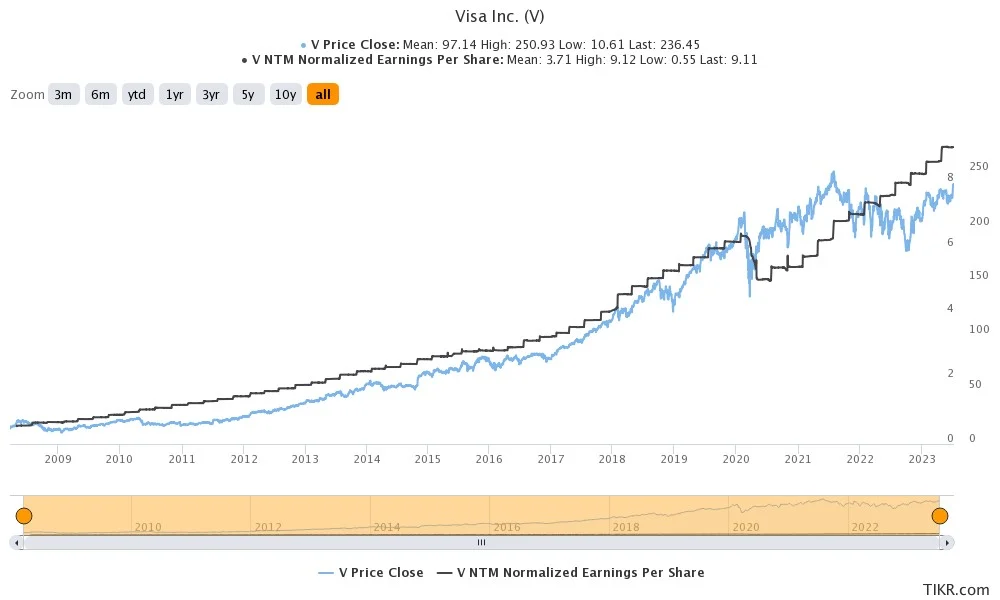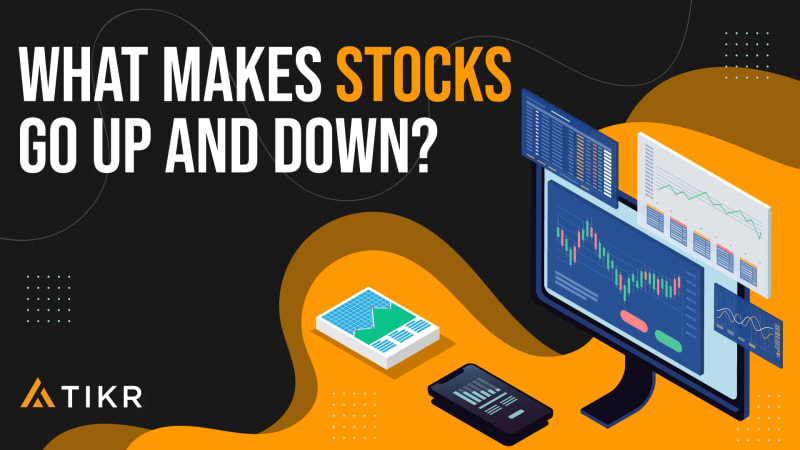From national and global events to individual company fundamentals, there are many variables that contribute to the dynamic nature of stock prices. Understanding what impacts the ups and downs of a stock in the short and long term can help investors make more informed decisions and better navigate stock trading.
This article provides an overview of the factors that explain what makes stocks go up and down, both short and long-term, and how investors can use this information to make investing decisions.
What influences stock price in the short term?
Short-term stock prices are influenced by a variety of factors, often working in combination. One of the most important forces to consider is supply and demand. Daily price movements are impacted by the number of stocks available for sale and the desire of investors to purchase those shares. Any imbalance in supply and demand can cause the price of a stock to fluctuate.
Other key factors that can affect the price of a stock in the short term include:
- National and global events. Events like a presidential election, war, or natural disaster.
- Economic factors. A change in interest rate, inflation, GDP growth, or the release of other economic data.
- Industry and sector factors. A major technological advancement, regulatory change, or release of a company’s earnings.
- Behavioral factors. Feelings of fear, greed, and bias.
Why do stocks go up in the short term?
At a very basic level, stocks go up when there is more demand than there is available supply. To highlight how a demand imbalance can cause the price of a stock to rise, consider the 2021 GameStop surge.
In January 2021, many large funds were taking short positions in companies like the struggling video game retailer, GameStop. A group of individual retail investors saw what these funds were doing and decided to try and beat them at their own game.
The retail investors decided to join forces through online communities like Reddit to coordinate a buying campaign. The combined efforts of these investors created a surge in demand that led to an unprecedented rise in GameStop’s stock price.
Why do stocks go down in the short term?
Large companies like Apple, Netflix, and Meta are no strangers to the short-term rise and fall of stock prices. For instance, in February of 2022, Meta’s stock fell by as much as 25% within a day, thanks to the release of a dismal earnings report and news that the company had experienced a decrease in users for the first time.1 The release of this information was enough to cause fear among investors, resulting in an imbalance of supply.
What influences stock prices in the long term?
Long-term investors believe that stocks are really just a tiny piece of the underlying business. They recognize that many factors will impact the short-term or day-to-day rise and fall of a stock, but over the long-term a stock is primarily driven by the fundamentals of the underlying business. To estimate if a stock will go up over time, many long-term investors use fundamental analysis to determine the intrinsic value of the stock. Some of the factors used to conduct a fundamental analysis include:
- Company performance. Consider factors such as profitability, revenue growth, and cash flow generation.
- Competitive advantage. Does the company have an innovative edge that could help it establish itself as a leader in the industry?
- Industry Dynamics: How big is the addressable market for the company’s products? Is the market growing or shrinking?
- Company management. What is the track record of the company’s management team? Leadership that makes sound business decisions can help the company’s stock price trend up.
What makes a stock go up in the long term?
While short-term fluctuations and market downturns are common, the long-term trend of the stock market has been on the rise. By selecting companies with strong financials and good growth potential, investors can ignore the daily ups and downs and focus on the long game.
One example of a stock that has continued to go up over time is Visa. Looking at Figure 1, you can spot the short-term rise and fall of the stock; however, the overall long-term trend is up. Visa has positioned itself as a leading player in the digital payments industry. This has led to consistent growth in profits over time and a commensurate rise in its stock price.

What makes a stock go down in the long term?
Historically, the stock market has risen over time but there are exceptions to this rule. Take Sears as an example. Once the largest retailer in the world, today Sears is no longer a household name.
What caused the company’s downfall? A multitude of factors including an absence of innovation and a lack of competitive edge. Sears was unable to keep up as big box giants like Walmart and Target, and online retailers like Amazon took over more of the market share.
How can investors analyze if a stock will go up or down?
Many contributors can influence the price of a stock in the short and long term. Everything from the overall state of the economy to consumer sentiment or a negative earnings report. Often, it’s a complex combination of factors working together that result in the rise or fall.
When trying to estimate if a stock will go up or down in the long term, having a strategy in place to analyze the fundamentals can help you make a more informed decision faster. TIKR provides highly affordable institutional quality financial data to help individual investors like you quickly analyze stocks through fundamental analysis.
Sign up for a free TIKR account today.
References
- Business Insider. Facebook blames Apple after a historically bad quarter. Accessed June 29, 2023.






